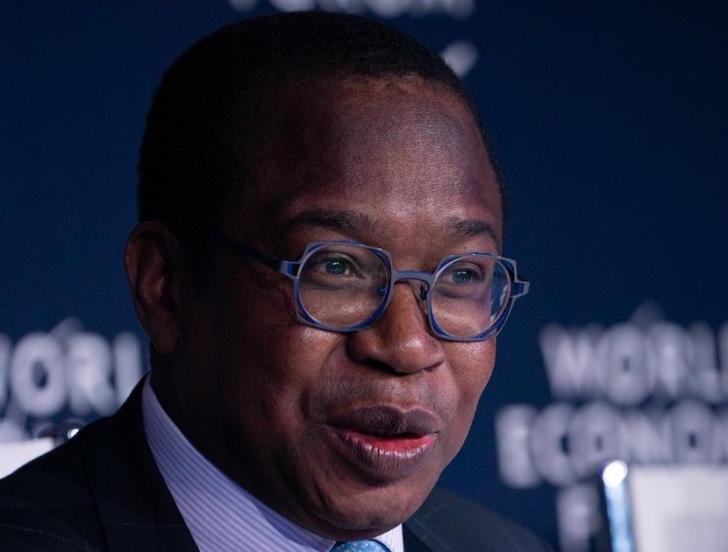News / National
Zimbabwe to cap civil service wage bill
21 Aug 2025 at 11:35hrs |
13 Views

Finance, Economic Development and Investment Promotion Minister Professor Mthuli Ncube has unveiled plans to cap civil service expenditure at 50% of the national budget, aiming to rein in rising wage costs amid a shrinking tax base and deteriorating economic conditions.
The initiative follows the elimination of 3,000 government positions between September 2024 and June 2025 and the ongoing purging of ghost workers through biometric audits across ministries and agencies.
Professor Ncube acknowledged that civil service costs remain high but stressed the need for fiscal balance.
"We agree that this is high. Clearly, this is of concern to us as Treasury, and we will make every effort to manage this. They (civil servants) work very hard, and they want to put pressure on us to keep improving their working conditions. This pushes up the wage bill, and therefore we have to balance the situation," he said.
He added: "It used to be 80%, and we've come a long way, but our target is a maximum of 50%, no more than 50%. This is an issue which I agree with observers on."
Measures to contain the wage bill include rationalising public service posts, right-sizing employment, cutting budget travel, and streamlining foreign missions, while obligations such as pensions remain unavoidable. Physical audits are planned to ensure all beneficiaries are legitimate and properly documented.
Cabinet approved the initiative following a Public Service Commission appraisal across 21 ministries, which revealed violations of job evaluation principles, functional duplications, overlapping roles, and managerial posts outnumbering non-managerial positions.
In response, the government has initiated nationwide staff rationalisation, upskilling and re-skilling programs, adoption of a new compensation framework, and a salary structure aligned with equal pay principles. The reforms aim to align government structures with Vision 2030, ensuring no one and no place is left behind.
Economists have welcomed the move, citing the unsustainable nature of current civil service expenditure, which stands at 56.4% of the budget.
"This is just too high for our economy. Something needs to be done to correct that," said economist Eddie Cross.
Professor Gift Mugano added that informalisation, now at 76% of the economy, has reduced tax revenues, with intermediated money transfer tax contributions declining from 16% to 7% of ZIMRA's total revenue, and VAT collections also affected.
The government's push to cap civil service spending is part of a broader strategy to ensure fiscal sustainability while maintaining essential public services.
The initiative follows the elimination of 3,000 government positions between September 2024 and June 2025 and the ongoing purging of ghost workers through biometric audits across ministries and agencies.
Professor Ncube acknowledged that civil service costs remain high but stressed the need for fiscal balance.
"We agree that this is high. Clearly, this is of concern to us as Treasury, and we will make every effort to manage this. They (civil servants) work very hard, and they want to put pressure on us to keep improving their working conditions. This pushes up the wage bill, and therefore we have to balance the situation," he said.
He added: "It used to be 80%, and we've come a long way, but our target is a maximum of 50%, no more than 50%. This is an issue which I agree with observers on."
Measures to contain the wage bill include rationalising public service posts, right-sizing employment, cutting budget travel, and streamlining foreign missions, while obligations such as pensions remain unavoidable. Physical audits are planned to ensure all beneficiaries are legitimate and properly documented.
Cabinet approved the initiative following a Public Service Commission appraisal across 21 ministries, which revealed violations of job evaluation principles, functional duplications, overlapping roles, and managerial posts outnumbering non-managerial positions.
In response, the government has initiated nationwide staff rationalisation, upskilling and re-skilling programs, adoption of a new compensation framework, and a salary structure aligned with equal pay principles. The reforms aim to align government structures with Vision 2030, ensuring no one and no place is left behind.
Economists have welcomed the move, citing the unsustainable nature of current civil service expenditure, which stands at 56.4% of the budget.
"This is just too high for our economy. Something needs to be done to correct that," said economist Eddie Cross.
Professor Gift Mugano added that informalisation, now at 76% of the economy, has reduced tax revenues, with intermediated money transfer tax contributions declining from 16% to 7% of ZIMRA's total revenue, and VAT collections also affected.
The government's push to cap civil service spending is part of a broader strategy to ensure fiscal sustainability while maintaining essential public services.
Source - Business Times
Join the discussion
Loading comments…

































